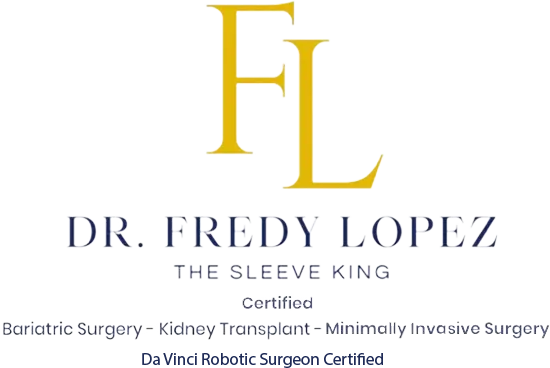Travel & Itinerary
- Home
- /
- Travel & Itinerary
AGENDA:
IT IS EXTREMELY IMPORTANT TO FOLLOW THE AGENDA TO ENSURE THAT YOUR PROCEDURE IS DONE AS SCHEDULED AND SAFLEY AS POSSIBLE SO YOU DO NOT INCUR ANY DELAYS.
MEDICATIONS:
- If taking Non-Steroidal Anti-inflammatory Drugs (NSAIDS), SUSPEND 7 DAYS PRIOR to procedure- absolutely no aspirin or NSAIDS because they interfere with the clotting process.
- Examples: (IBUPROFEN, NAPROXEN, TYLENOL, Meloxicam, PIROXICAM, KETOROLAC, DICLOFENAC, INDOMETHACIN).
- IF diabetic and taking diabetic medication SUSPEND medication 24 HRS PRIOR to procedure.
- If hypertensive and taking blood pressure medication, CONTINUE as scheduled.
- If taking thyroid medication, CONTINUE as scheduled.
- If taking anti-depressive medication, CONTINUE as scheduled.
- IF TAKING ANY OTHER MEDS, LET US KNOW
Day 1: Arrive in San Diego
Book your flights To/From San Diego, CA International Airport (SAN). Flight instructions include.
- ARRIVAL DATE: Before 10:00 am PST (noon)
- DEPARTURE DATE: After 2:00 pm PST
- Bloodwork Pre-Op Labs and EKG
- Stay the night at the Hotel
Day 2: Surgery Day
You will be picked up from the hotel early for your surgery. Once you arrive at the hospital, you’ll meet the medical team and will have a 1-on-1 with your surgeon Dr. Fredy Lopez and have a chance to talk and ask anything you would like to know. You will also get to meet the anesthesiologist, and an internist who will come in and do the pre-surgery consults. This is a very good time to ask any questions you might have for the doctors about restarting medication, vitamins, wound care, diet, and exercise. Then you will have your procedure done.
- Pick you up and take you to surgery. The time of surgery is in the morning, and you will be notified of the surgery time the day before
- Stay 2 Nights in Hospital for gastric sleeve.
Stay the night at the Surgical Center
Day 3: Recovery at Hospital
Post-op testing is completed before discharge.
- *Gastric bypass, mini gastric bypass, duodenal switch, and some revision surgeries patients stay one extra night at the hospital.
Day 4: Departure
The driver has an exclusive license and dual insurance, allowing him to take you through the border in a special medical tourism lane that can bypass traffic.
- The Chauffer with drive you to the airport
- Plan flight after 2:00pm
What do I Bring to Mexico? What Do I Need to Pack in my Suitcase?
Use a carry-on, wheeled suitcase (if possible) for traveling. If you must check luggage, use a wheeled suitcase to avoid unnecessary lifting. Do not lift anything greater than 30 pounds for 6-8 weeks post-op. Have someone assist you once you arrive at your home airport.
PLEASE READ CAREFULLY AND COMPLETEY AND REACH OUT TO US IF YOU HAVE ANY QUESTIONS OR CONCERS.
- Do NOT forget your Passport
- Your normal travel documents, driver’s license, passport, cash, debit/credit card.
- Make sure to call your bank and credit card companies to alert them of travel dates and possible charges from Mexico.
- Alert your cell-phone carrier of the dates your will be traveling to Mexico to ensure that you are covered, or you may need to add a short-term international roaming to your plan.
- Bring all your current prescription medications in their original bottles.
- Do not forget to bring your CPAP machine if you use one. If you do not bring it with you, the hospital does provide one for you at an additional cost.
- A small suitcase and a carry-on
- Bring a neck pillow for the flight.
- Bring some spending cash, preferably smaller bills, at least $200.00 USD ($1s,5s,10s, 20s). Although tipping is up to you, having extra cash on hand is a good idea.
- Bring slippers that easily slip on when you get out of the hospital bed.
- Slide-on preferred, your abdomen will be too sore to bend down to put on and tie your shoes. You may have to take off shoes to get through security at the airport, and again, you will not feel like bending over to tie your shoes afterward.
- Bring extra washcloths.
- Loose, stretchy comfortable clothes. 3 pairs.
- Bring extra underwear and extra socks.
- Bring a warm jacket or a sweater for the plane ride just in case you’re cold in the hospital.
- Light robe to wear if you prefer over hospital gowns.
- Entertainment (Music player, DVD player, laptop, tablet, smartphone, etc. Batteries/Charger electronic devices. Books, magazines, or other reading material.)
- Sleep masks and earplugs.
- Heating pad as it helps with the gas pain.
- Hygiene (Personal toiletries such as toothbrush, toothpaste, mouthwash, and hairbrush. Female sanitary towels – tampons may be too uncomfortable to use/apply)
- Six foot charging cords and charging plug for phone/tablet.
- Leave jewelry (which must be removed before surgery as well as any metals, piercings, etc.) and valuables at home.
- Do not bring any PROHIBITED ITEMS: FIREARMS, MARIJUANA, WEAPONS
